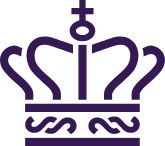The case is closed without further legal proceedings
When formal charges are not brought, a case may be brought to a close in several ways.
Although the police may have provisionally charged you as a suspect in the case, the prosecution service may decide not to bring formal charges against you. This means that the case will not go to court. This typically happens in cases where the prosecution service does not believe that they have the evidence required to obtain a conviction. In some situations, you will be able to claim compensation if you are not formally charged. Read more about compensation.
A case concerning less serious offences may also end with your paying a fixed penalty or receiving a notice that the charges are have been dropped.
Fixed penalty amounts
In cases which can be settled by payment of a fixed penalty amount, you will receive a fixed penalty notice from the police.
The fixed penalty notice states the offence you are charged with having committed and the amount you are ordered to pay. The fixed penalty notice states the time limit for paying the amount if you admit your guilt.
If you pay the fixed penalty amount, the case is closed.
If you do not pay the amount, the police will send the case to court.
The court will be able to convict you of the crime stated in the fixed penalty notice without further warning unless you request within the time limit stated in the notice that the case be heard before the court. The court's decision cannot be appealed.
Decision to drop charges
When charges are dropped, the prosecution service believes that you are guilty, but there will be no court proceedings. You will receive a letter from the prosecution service about the decision to drop charges. The decision to drop charges may contain conditions that you will be required to meet.
A victim in a criminal case cannot decide whether you will be prosecuted. This is a decision for the prosecution service.


